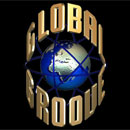Hans Werner Henze (born in Gütersloh, Westphalia, 1 July 1926, died in Dresden, 27 October 2012) was a German composer of prodigious output best known for "his consistent cultivation of music for the theatre throughout his life". His music is extremely varied in style, having been influenced by serialism, atonality, Stravinsky, Italian music, Arabic music and jazz, as well as traditional schools of German composition.
Henze was also known for his political convictions. He left Germany for Italy in 1953 because of a perceived intolerance towards his leftist politics and homosexuality. He lived more recently in the village of Marino in the central Italian region of Lazio, and in his final years still traveled extensively, in particular to Britain and Germany, as part of his work. An avowed Marxist and member of the Communist Party of Italy, Henze produced compositions honoring Ho Chi Minh and Che Guevara. The librettist of his requiem for Che Guevara, titled Das Floß der Medusa (The Raft of Medusa), was among several people arrested at the 1968 Hamburg premiere in the riot that followed the placing of a red flag on the stage. Henze spent a year teaching in Cuba, though he later became disillusioned with Castro.
Henze began composing at the age of twelve. He studied at the Brunswick State Music School and, after military service, at the Institute for Church Music in Heidelberg and with Wolfgang Fortner. He attended the early Darmstadt International Summer Schools for New Music, where he met René Leibowitz, studying serial technique with him both there and in Paris.
Of Henze's huge catalogue of works the earliest acknowledged date from 1946: the Kammerkonzert for piano, flute and strings, and the sonata for violin and piano. The following year brought the first string quartet, violin concerto and symphony. In 1948 he produced his first opera, the one-act 'Das Wundertheater', premiered in Heidelberg, and in 1949 his first acknowledged ballet, 'Ballett-Variationen'. His first full-scale opera, 'Boulevard Solitude', an updating of the Manon Lescaut story, was successfully launched in Hanover in 1952, but a year later Henze abandoned postwar German society to settle in Italy.
His next opera, 'König Hirsch', and a whole series of pieces reflect the warming influence on him of the Italian environment. He memorably described himself as 'a north German contrapuntal temperament projected into the arioso south'; and the modernist, Schoenbergian and Stravinskyan influences of his earlier work now submitted to the tender sway of a sensuous lyricism clearly evident in the ballet 'Ondine', the 'Fünf neapolitanische Lieder' for baritone and chamber orchestra, the 'Nachtstücke und Arien' for soprano and large orchestra. To this rich synthesis was added a more austere classical strain in works such as 'Cantata della fiaba estrema' for soprano, chamber chorus and instruments, or 'Ariosi' for soprano, violin and orchestra; while a constructivistic approach was brought to bear on such pieces as 'Antifone' for solo strings, wind and percussion, the cantata 'Novae de infinito laudes', and the Kleist-based opera 'Der Prinz von Homburg'.
Henze's operatic career reached a pitch of boldness and acclaim with 'The Bassarids', a two-hour single act conceived as a four-movement symphony, premiered in Salzburg in 1966; while his 45-minute second piano concerto of 1967 was a peak of his more abstract writing. But with the oratorio 'Das Floss der Medusa', and more conspicuously the 'Versuch über Schweine' for baritone-Sprechgesang and orchestra, both of the following year, and the exuberant, aleatory sixth symphony of 1969, a complete change came over Henze's work. Political protest, deep-dyed into the very fabric of the music - and indicated by his periods of residence in Cuba - marks his output of the 1970s, as attested by the revolutionary 'recital for four musicians' of El Cimarrón, followed by a concerto for viola and small orchestra, entitled 'Compases', the quasi-theatrical second violin concerto, and the 'actions for music' 'We come to the River', a stage work to a libretto by Edward Bond. Since the appearance of this work, first performed at Covent Garden in 1976, the political ferment of Henze's creativity has tended to subside. Revolutionary ideals invariably lead to disillusion; but he does count the foundation that same year of the Cantiere Internazionale d'Arte - a people's arts festival - in the Tuscan town of Montepulciano as 'one of my few political successes'. Subsequent stage works include two other Bond collaborations, however: the comic parable of 'The English Cat' and the ballet 'Orpheus'; and if in the most recent two, 'Das verratene Meer' and 'Venus und Adonis', both to a libretto by Hans-Ulrich Treichel, attention is focused on personal and psychological experience - as it also is in the seventh symphony or the instrumental (wordless) 'Requiem' - the cantata-like Symphony No 9, 'dedicated to the heroes and martyrs of German antifascism', is there to remind us that vehement political protest still looms large in Henze's imagination.
After the completion of his tenth symphony he started working on his last opera 'L’Upupa und der Triumph der Sohnesliebe' which was premiered at the Salzburg Festival in summer 2003 to great international acclaim. It resulted in many future productions, such as at Teatro Real Madrid, Opera de Lyon, Teatro Carlo Fenice Genoa, and Hamburgische Staatsoper. He has received innumerable honours and was the first composer-in-residence of the Berlin Philharmonic and has twice been composer-in-residence at the Tanglewood Festival. Recently he wroten an orchestral work for Radio France ('Nouvelles pour la Reine de Saba') and in December 2005 the Royal Concertgebouw Orchestra Amsterdam premiered the new orchestral work 'Sebastian im Traum' to great acclaim.
Read more on Last.fm. User-contributed text is available under the Creative Commons By-SA License; additional terms may apply.




